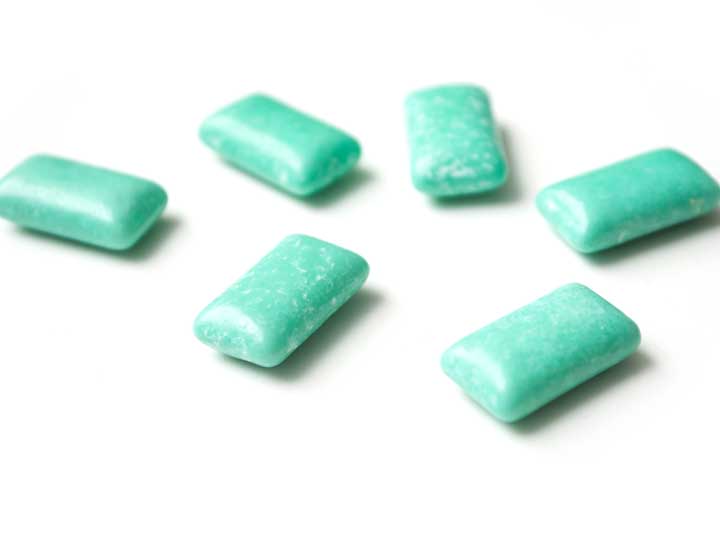Xylitol Kills Pets! What You Need to Know Right Now!

Do you know what xylitol is? Do you know that it is dangerous and can kill your dog? If you, answered no to either of these questions then you must read and share this! Xylitol is even more deadly than chocolate and with and chances are, that you have something containing xylitol in your pantry right now or even your purse and you do not even know it! It is used more and more in everyday products, it is super toxic, and a lack of our knowledge can put our four-legged family members in danger.
Common Uses of Xylitol
- Artificial Sweetener -it is sweet like sugar but has significantly fewer calories.
- Dental Products -it is an additive that prevents bacteria in the mouth from producing acids that damage tooth enamel.
- Humectant -it is an additive that reduces the loss of moisture and non-edible products like nasal sprays and skin products.
What are the effects of xylitol on dogs and cats?
In dogs, it increases the release of insulin and causes a decrease in blood sugar levels. Xylitol will cause the same effect in cats but is unlikely to be an issue due to its finicky palate. They do not like it and have discriminating appetites.
What are the symptoms of xylitol toxicity?
The first symptom of xylitol toxicity is likely to be vomiting. trembling, weakness, collapse, seizures, and potentially death are caused by low blood sugar levels that develop 30 minutes to 12 hours after ingestion. Liver damage happens within 12 to 24 hours when elevated liver enzymes can be detected with lab work. High xylitol doses can cause major necrosis of the liver which is considered a medical condition that can result in death. Xylitol can drop blood sugar levels down to levels that are not compatible with life in 30 to 90 minutes!
What is a toxic dose of xylitol for dogs?
According to the Pet Poison Helpline, the dose needed to cause poisoning is at least 0.05 grams per pound of body weight (0.1 grams per kilogram of body weight). Gums and breath mints typically contain 0.22-1.0 grams of xylitol per piece of gum or per mint. This means that a 10-pound dog could eat one piece of gum and it could be toxic!
What to do if your dog consumes xylitol?
Time is critical in your dog’s prognosis! If you have caught your dog in the middle of eating something containing xylitol and KNOW that it just happened, call us immediately. You may be instructed to induce vomiting with hydrogen peroxide. If you do not know when it happened and have just come home to some type of evidence that it has your dog has possibly eaten xylitol, get help ASAP!!! Your dog’s life depends on the amount of xylitol consumed and the time frame in which treatment has been started. transport your pet to our hospital (during business hours) or to an after-hours emergency hospital. If possible, call when you are en route so that we are waiting for you when you arrive.
How is Xylitol toxicity treated?
Treatment includes hospitalization with round-the-clock care, blood monitoring, and administration of intravenous glucose and liver-protective agents. Sometimes blood transfusions are needed if there are blood clotting issues caused by liver failure.
How to prevent xylitol toxicity?
If you use products that contain xylitol be sure that they are stored out of your pet’s reach and preferably in a cabinet or drawer that latches shut. Our four-legged family members can be very smart and determined when it comes to getting something they want.
Common household products that contain Xylitol:
|
|
|
|
|
|
|
|
|
|
|
|
|
|
|
|
|
|
|
|
|
|
|
|
|
?????Read all product labels carefully. If it is labeled as “artificially sweetened” and does not clearly list an artificial sweetener, assume that it contains xylitol to be safe.
What is Birch Sugar?
“Birch sugar” or “wood” sugar is a new way that xylitol is being marketed. Technically it is the natural form of xylitol. But do not be fooled, just because it is the “natural” form of xylitol doesn’t mean that it is a safe or better form of xylitol. It is JUST as DEADLY and TOXIC to your pets as the synthetic form.
How to prevent your dog or cat from xylitol poisoning?
- Check your labels- know what is in everything that you bring into your home. If it is toxic to your pets, put it in a place that they can not reach and can not open.
- Keep your bags out of reach- when you come home from work, or school, especially the grocery store, do not put your bags down where your pet can get into them.
- Do not buy it- if you do not need it for medical reasons, just don’t buy it. There are plenty of alternatives to everything else that xylitol is used for.
When did you last evaluate your home for potential pet dangers? If you have any questions about what you can do to protect your furry family members, please feel free to email us at CreeksideFront@gmail.com or call us at (281) 351-8387
